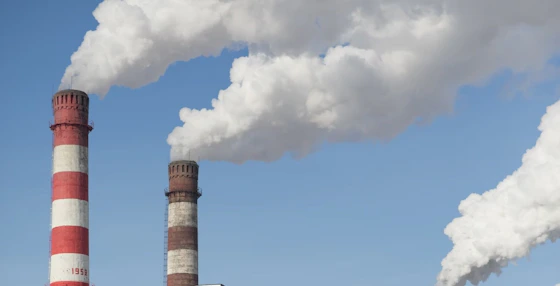Today, Gold Standard has opened consultations for pioneering methodologies for the decommissioning of coal power stations and fossil fuel generators. Together the Joined-up Sustainable Transition (JUST): Coal Decommissioning and Joined-up Sustainable Transition (JUST): Fossil Fuel Generators methodologies aim to mobilise finance for the managed phase-out of fossil fuels, rewarding verified emissions reductions achieved through the switch to cleaner energy sources. Both methodologies are fully aligned with the Paris Agreement, meaning key elements like additionality, baseline setting and data quality are designed to mitigate the risk of inadvertently undermining government efforts.
The consultations come as global attention at COP30 turns to Energy, Industry and Just Transition, underscoring the essential role of high-integrity climate finance in accelerating an equitable transition away from fossil fuels in favour of clean energy.
The new methodologies incentivise the retirement of fossil fuel infrastructure and investment in renewable energy alternatives, bridging carbon markets with sustainable energy finance.
“These methodologies create a credible pathway to finance the early phase-out of fossil fuel assets, from coal plants to dispersed generators, and replace them with cleaner, more resilient systems using technologies that are available today. By linking climate finance to the verified retirement of high-emitting infrastructure, they help protect livelihoods, maintain energy access and ensure the transition delivers real benefits for people and nature,” said Margaret Kim, Chief Executive Officer at Gold Standard.
JUST: Coal Decommissioning
The methodology enables project developers and governments to access climate finance to retire coal plants early, replace them with renewable energy generation, maintain grid reliability and support new opportunities for workers and communities.
JUST: Fossil Fuels Generators
Applies to projects replacing decentralised fossil fuel generators with renewable energy systems. The methodology, developed with Sustainable Energy for All, will be used to measure emissions reductions, including black carbon, achieved in shifting away from fuel or gas-powered generators toward renewable energy generation, particularly in areas not connected to a national grid. In many African countries, where diesel generators fill critical energy gaps but deepen energy poverty through high costs and pollution, this methodology supports a more equitable shift toward reliable, renewable power.
"This new methodology marks a turning point in how we power communities by replacing fossil fuel generators with clean and reliable energy. Developed in partnership with Sustainable Energy for All, it provides a robust framework to scale decentralized energy systems. Together, we are driving the transition toward resilient energy solutions that close energy access gaps while helping local communities thrive.” said Damilola Ogunbiyi, CEO and Special Representative of the UN Secretary-General (UN SRSG) for Sustainable Energy for All
Gold Standard is also consulting on the Just Transition Requirements to ensure the shift from high to low carbon activities is fair, inclusive and protective of workers and communities.
Alongside the consultations, Gold Standard has published a new white paper, Beyond Coal: Expanding Transition Credits to Dispersed Energy Solutions for a Just Future, which sets out the case for extending transition finance frameworks beyond coal to the phase-out of decentralised fossil fuel generation, particularly diesel generators. The analysis highlights the scale of this “shadow grid” in many emerging and developing economies, the significant economic and health burdens it imposes on households and SMEs, and the opportunity to deliver immediate and widely shared sustainable development benefits by replacing these generators with clean, reliable energy solutions.
The methodologies and requirements will enable countries, communities, and investors to take credible, high-integrity action to achieve a just transition. By creating incentives to replace polluting systems with clean, proven alternatives, they open the door to faster emissions reductions, healthier communities and more resilient energy systems. Help shape these tools so that together we can accelerate the shift to a future powered by clean energy, shared prosperity and climate ambition grounded in integrity by responding to the consultations.




